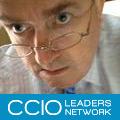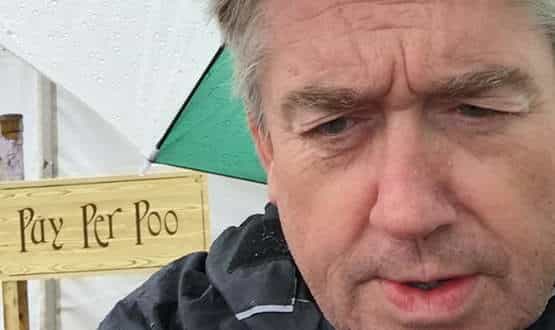“Let’s go to a festival,” she said: “It’ll be great.” I hadn’t been to a festival since 1979 when I went to Knebworth to see Led Zeppelin’s last ever gig (or so we thought at the time).
We flung a mattress in the back of the transit van and squashed ourselves in as best we could. It was uncomfortable, but we were young – so it didn’t matter.
The campsite was an ecstasy of guy rope tripping in a haze of cannabis smoke which almost, but not quite, masked the appalling smell of the temporary toilet facilities.
Unfortunately, some months before the festival, I had heard a single – ‘New Rose’ by The Damned – on the John Peel Show.
This changed everything. Between buying my ticket for Zeppelin and getting to the festival I had become a punk rocker.
I didn’t particularly want to see Zeppelin but remained a fan of South Side Johnny and the Asbury Dukes, who were supporting. I therefore took the risk of being “punk-bashed” for the second time that year.
Fortunately for me, the 200,000 hippies in the field were all stoned and just viewed my spikey haircut as plain weirdness.
Nonetheless I felt ill at ease, queasy even. When Zeppelin took to the stage it started to rain. They were terrible. The crowd took to throwing bottles at each other.
Then the diarrhoea started. I spent much of the evening in a seatless, hell-hole festival toilet. Even now the phrase “and she’s buying a stairway to heaven” can make me feel nauseous.
Never again, I vowed to myself. “It’s on my bucket list though,” she said. “You’ll hate it,” I said. “Especially the toilets.”
Pay per poo or £20 to poo all you like?
We tried and failed to get Glastonbury tickets, which held out the promise of “glamping” with proper toilets.
So we opted instead to go to WOMAD, the World of Music and Dance Festival. Key to my agreement was my wife Fiona’s assurance that festival toilets had changed.
In fact we could sign up for ‘La-di-da-Loos’ promising posh toilets for festival goers who shared my anxieties.
You could pay per visit or buy a subscription for the duration of the festival for £20 pounds. I cheerfully paid the £20. Money well spent at the festival, which was renamed WOMUD because of the rain.
My, how it rained. The ordinary festival toilets were overwhelmed. The Poo Truck got stuck in the mud. I imagine the La-di-da-Loos people made a fortune.
Summer schools: more excitement, less rain
Either side of WOMAD I went to two very different festivals. Firstly, the CCIO Summer School in Newcastle where clinical demand for interoperability between systems was palpable from Norway to New Zealand (whence two of our guest speakers came).
The need to have critical patient information available at the point of need is increasingly seen by the chief clinical information officer community as a basic right for citizens living in a digital age.
There was a consensus that we should redouble our efforts to make sure that the NHS only purchases systems that will interoperate.
Another of the keynote speakers was the founder of EMIS, Dr David Stables, who electrified the audience when he talked about the Endeavour Health project, into which he has invested £5million of his own money.
The project is described on the website as: “A major project to create technology to help data exchange between healthcare systems so that healthcare professionals and patients can have access to the information they need for their care, when they need it, where they need it.
“All technology will be freely available for unlimited use as open source without intellectual property or trademark restrictions.”
Music to my ears as a founding director of the Open Source Software Foundation for Health and Care Community Interest Company (OSFHCCIC or The Foundation, for short). The project was enthusiastically received by the CCIO community.
Two weeks later, at my third festival of the month, I was delighted to be a guest of the Health CIO Summer School in Cambridge, chaired by Ade Byrne, chairman of the Health CIO Network.
At this event, there was excitement about sharing records across communities and with patients. Again, there was demand from people who know what they are talking about for more interoperability.
Funding a great leap forward
A great leap forward in patient safety seems tantalisingly within our reach. We have the technology, we have a clinical standards setting body in the PRSB, we have the money, and we have the increasingly mature CCIO and CIO communities providing NHS engagement and clarity around requirements.
The only piece missing is a sustainable business model for the interoperability “glue” that the Endeavour Health project might produce.
At both Summer Schools I felt there was a growing consensus that no single system supplier could be allowed to dominate the interoperability space, and that a not for profit approach would benefit all.
But how to fund it in perpetuity? Endeavour Health’s £5million will not last forever; but the work of maintaining interoperability will be ongoing.
Two models suggest themselves. Firstly, transactional or “pay per poo.” The heaviest users of interoperability systems pay a fee per transaction.
Secondly, a sponsorship/subscription based model in which each organisation that wants to participate pays an annual membership fee to support the work.
The obvious question here is “pay to whom”? The Health and Social Care Information Centre? Endeavour Health? OSFHCCIC (or The Foundation for short)? Or some new not for profit concern born from all three?
Maybe Spine 2 could come to the party, too? We aren’t the first organisation to need to set standards around interoperability; maybe the NHS could get Tim Berners-Lee in to advise us on how to go about it?
Of course, in a bygone age we might have done something government owned like the National Grid or the General Post Office – but those ideas seem to have gone out of fashion.
 | Joe McDonaldJoe McDonald is a practising NHS consultant psychiatrist. Over the past five years he has been an NHS trust medical director and national clinical lead for IT at NHS Connecting for Health – a stint that included 18 months as medical director of the Lorenzo delivery team! His experiences in the National Programme for IT in the NHS have left him with a passion for usability and "end user knowledge networks.” He is the founding chairman of the National Mental Health Informatics Network. Motto: we don't get fooled again. Follow him on twitter @CompareSoftware |  |

